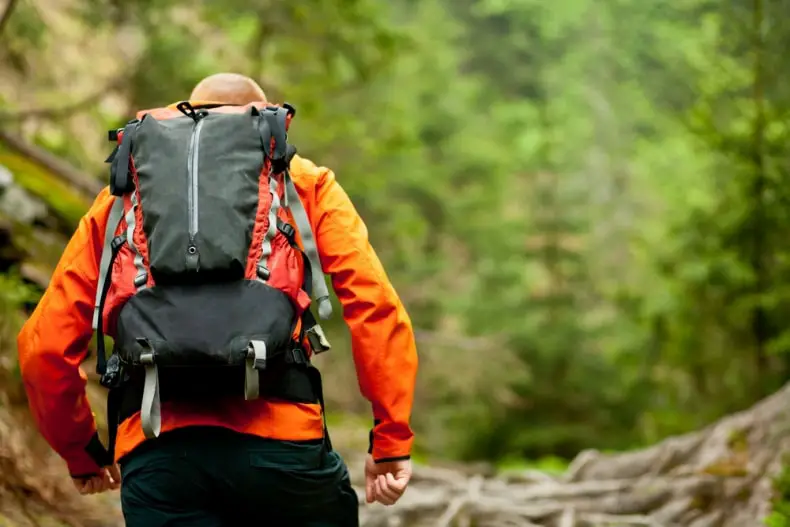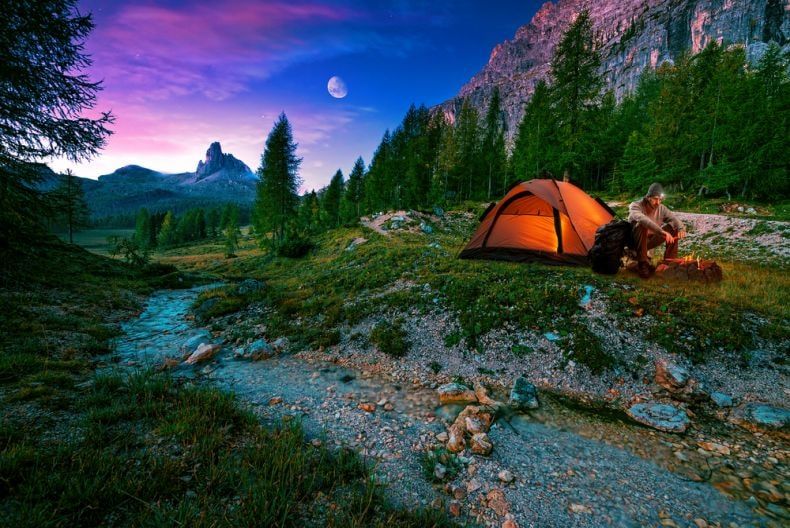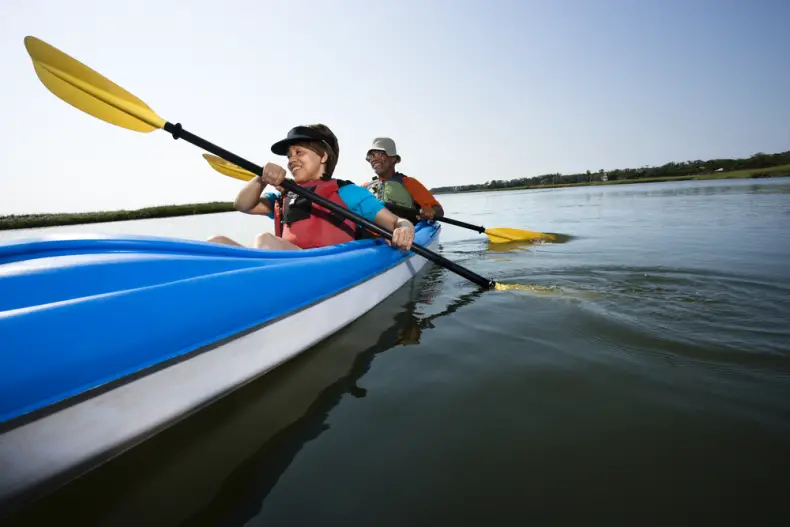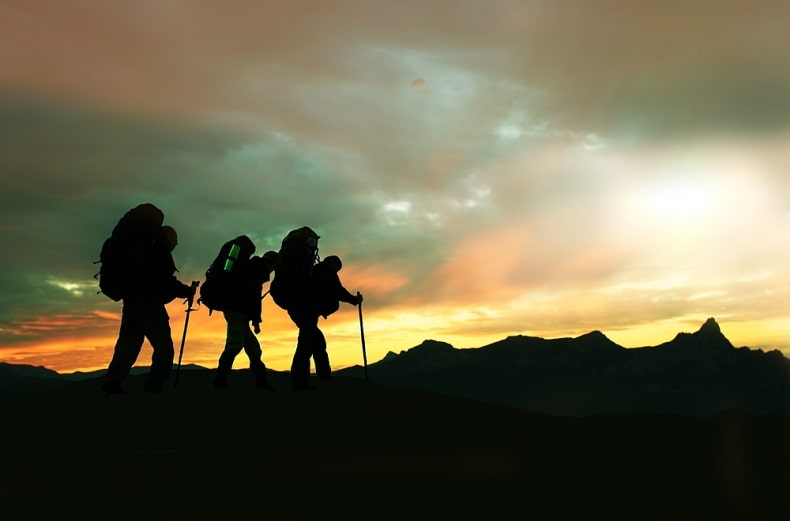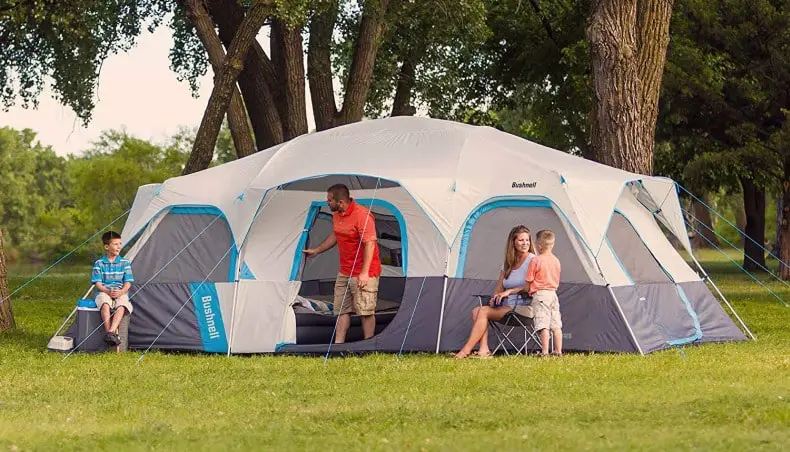Backpacking can be fun to do when it’s nice outdoors. We highly recommend it for numerous reasons, such as the fact that it is great exercise, gives your body needed sun exposure, and even gets you into lovely areas of nature. However, the weight you carry on your back is important to know about.
It is recommended to never exceed 20% of your own body weight. Meanwhile, a hiking day backpack should not exceed 10% of your overall body weight.
Of course, it makes sense when you think about it. You do not want to hurt your back or legs. If you were to carry 40% or more, even the most in-shape people could have trouble. Thus, if you weigh 200lbs…try not to carry anything heavier than 30 to 40lbs.
We’d even recommend not going over 20lbs if you can help it. However, if you plan to camp outdoors while backpacking through places…you’re likely to exceed 20lbs depending on the size of your tent.
However, when it comes to backpacking, weight overall is of heavy importance to the community for obvious reasons.
Table of Contents
Backpacker Clothing Gear
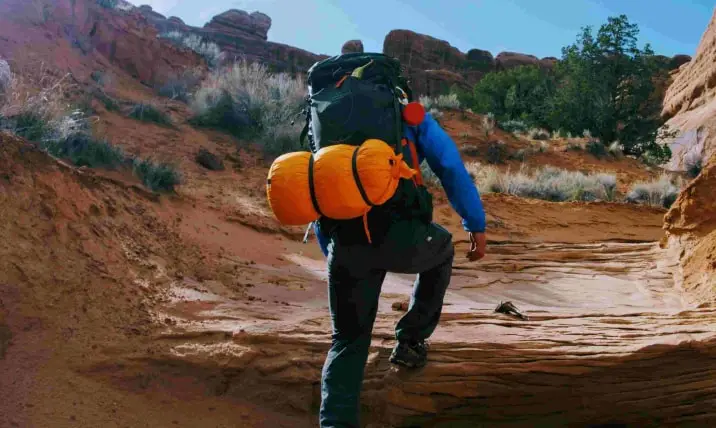
Most backpacking gear you’ll tend to see will always be low in weight. For example, look at all the clothing that is recommended for backpackers. Go ahead, check out brands like Marmot, Arc’teryx, and many more that sell backpacking gear.
You’ll notice clothing tends to be lightweight while also offering some level of warmth. Many will also be cleared for various weather conditions, including possible rain issues. In fact, backpackers and hikers truly made the “Shell Jacket” popular.
These jackets tend to be worn by outdoor enthusiasts due to their lightweight, weatherproof ability. Heck, even your standard person that likes to camp might use one simply due to how impressive they are.
Pants and shoes will also be of prime importance to the backpacker or hiker. As a result, they too will be lightweight and capable of holding up to numerous different weather conditions. You never know when storms might come in at times. These items keep you properly prepared for anything.
Backpacks for Backpackers

Most backpacks for those who love to backpack are going to differ heavily from your standard backpack. In fact, they’ll differ so heavily that you’ll sort of be surprised when you look at them compared to your school backpack. That is due to the weight control they’re made to assist with.
They will have normal straps along with buckle spots to keep the backpack from falling off of you easily. Some will even come with waist connectors as well as leg buckle connections too. Of course, the more elaborate the bag tends to be, the more likely the person is on a major backpacking venture.
If you get one of these elaborate backpacks and only plan to be gone for a day, you’re really overspending compared to a person who backpacks for a week or two. As a result, a backpack with mere buckle connections in the chest/waist sector is all you’d really “need,” truthfully.
They will traditionally have backpacks made for men and women. Why do they genderize backpacks? Usually, this is not to be weird or anything. It’s mostly due to the average size a person tends to be. Backpacks men will need are going to traditionally be larger.
This is not to say that the liter amount will be any less, however. Bags made for backpackers will never skimp on the liter amount, regardless of the male or female version. If they sell a 50L for male backpacks, they’ll also sell a 50L for female backpacks.
Tents For Backpackers
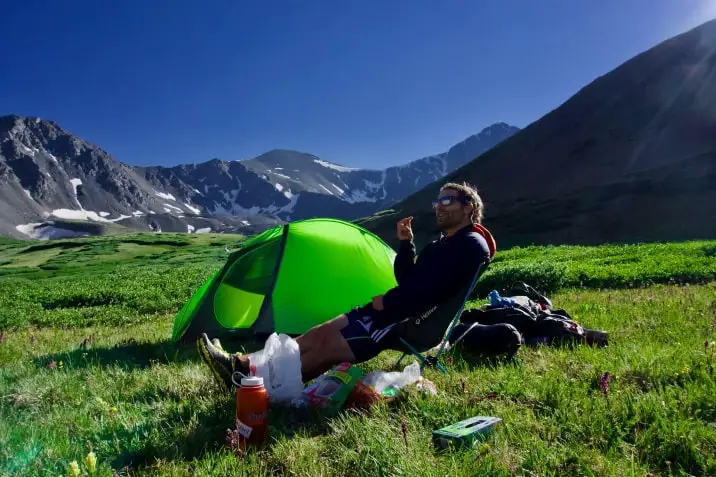
Most tents used by backpackers will be low in weight and a little smaller than your standard tent. In fact, some of them have even been known to be regular pop-up tents that are easy to set up and get into. Most of these tents are also very good under various weather conditions.
While many are not well-versed in major snowfall or blizzards, a lot of them rank well in waterproofness as well as UV Protection, and Wind Protection. Ultimately, these are the main concerns for your average backpacker. Thus, that is what backpacking tent makers think about.
If you check out the tent weight, they tend to weigh less than 12lbs on average. A lot of these tents are made for just one person, however. Those that tend to weigh more are the larger backpacking tents made for 2 people or more.
Yet a true backpacking tent rarely exceeds a 2 person capacity. Mostly because you want them to weigh as little as possible. Making them for 4 or more people only increases weight, something you’re trying to avoid.
Knowing How To Cut Down Backpack Weight
If you’re planning to camp while backpacking, what you will want to carry with you will likely be a bit heavier. You’ll have more to take along for the ride, right? As a result, you’ll likely unload a good bit of this before you go out on a big hike or adventure. You’ll more than likely return to camp.
As a result, packing more than 20% of your body weight into a backpack isn’t a big deal. This is due to knowing a large percentage of that weight will be left back at camp. Meanwhile, if you’re planning to backpack and only stop to rest, then you’re going to keep moving campsites.
The difference between the two is pretty huge. That said, knowing which you’ll end up doing is important. Most backpackers will tell you the latter concept while most hikers will tell you the former. That said, you’ll need to consider a few things when backpacking.
For example, think about this:
- Tent Weight & Size
- Food & Water Weight
- Clothing Weight (if you plan to take any)
- Cooking Gear
- Emergency Equipment (First Aid Kit, Epi-Pen)
- Extra Equipment (such as scientific instruments, climbing gear, etc.)
These are the most common, obvious items people will take with them. You might also see people take a solar battery or solar battery charger, compass, lighter/flint/fire-starter, and things similar to this. But none of these are considered heavy and are all easy, acceptable items to take.
How To Avoid Packing Too Much:
However, there comes a time when you might be packing up too much. For example, cooking gear might be needed. Yet you can find some lightweight cooking gear, and you’d only really need one pot and/or one skillet to cook. You do not even technically “need” either, they just make cooking easier.
Just one small change here could reduce weight by up to 5lbs alone.
You also do not need to pack an abundance of clothes. Only those you feel you might need on your journey. Which if only for a few days, would just be maybe 1 to 2 changes of clothes max…if even that!
Many need to take medicine with them. If you’re one of those people, do not take all your medicine bottles with you. Just go buy one of those day-to-day pill organizers. It will be lightweight, only involve the exact medicine you need, and it’ll be a good way to help you remember to take things too.
It’s the little things, people.

